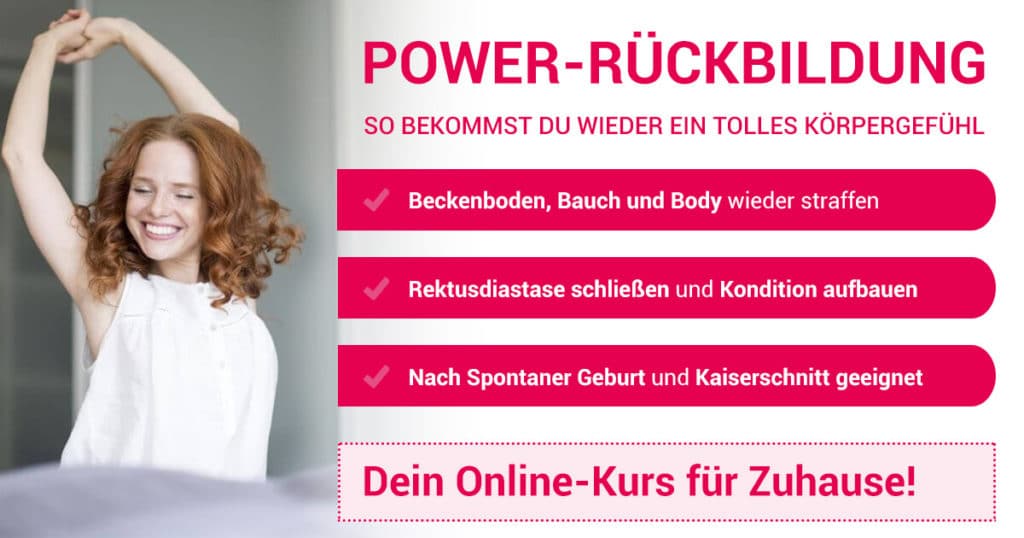Congratulations, you’re going to be a mom soon! Only the financial aspects are still giving you a headache? Don’t worry, maternity protection applies before and after the birth and you will receive financial support.
However, not all mothers receive this maternity benefit – moreover, the money does not come automatically, it must be applied for separately. What exactly maternity benefit is, who is entitled to it, how much is paid, how to apply for it, and much more, you can find out here in the text.
Table of contents
What Is Maternity Benefit?
Maternity benefit (sometimes called maternity protection benefit or mommy money) is a benefit under the Maternity Protection Act (MuSchG) that is paid to working women instead of their wages.
It protects women on maternity leave from financial disadvantages. From a financial point of view, it, therefore, makes no sense to continue working during maternity leave and can finance important purchases such as the baby carriage, nursery furniture, or baby equipment.
When does maternity leave take place, you ask? Maternity protection begins six weeks before your expected delivery date and ends eight weeks after the birth. In the case of premature or multiple births, or if the newborn has a disability, it is even twelve weeks.
During this time, pregnant women do not have to work. Two aspects are important when it comes to maternity benefits: your employment relationship and how you are covered by health insurance. This is because not all working women receive maternity benefits.
Who Is Entitled To Maternity Benefit?
Maternity benefit is linked to employment and is primarily aimed at women who are in regular employment and have statutory health insurance. Those who have voluntary statutory health insurance are also entitled to maternity benefits (§ 24 I SGB V).
To ensure that pregnant women and mothers do not suffer any financial disadvantages, the maternity benefit is roughly equivalent to the average net salary for the last three months. A maximum of 13 euros per calendar day is covered by statutory health insurance. The difference to the usual net salary is topped up by the employer.
Employees Who Have Private Health Insurance
Receive a reduced maternity benefit of a one-time maximum of 210 euros. It is paid by the Federal Insurance Office. Private health insurance (PKV) does not pay maternity benefits.
The allowance from the employer is calculated as if you were legally insured. Consequently, as a privately insured employee on maternity leave, you will receive your net salary minus 13 euros per working day.
Women in marginal employment who have family insurance also receive a maximum of 210 euros as a one-time payment from the Federal Insurance Office. An employer’s allowance is only paid if the net monthly salary exceeds 390 euros.
The employer then pays the net salary minus 13 euros per day. Low-income employees who are themselves members of a statutory health insurance fund are entitled to maternity benefits from the fund and can receive a maximum of 13 euros per day.
Self-employed women who have private health insurance do not receive maternity pay. However, it is possible to take out daily sickness allowance insurance with the PKV.
Since 2017, this has ensured entitlement to daily sickness benefits even during maternity leave. If you are self-employed and have voluntary statutory insurance, it depends on whether you have taken out insurance with entitlement to sick pay.
If the entitlement to sick pay has been agreed with the insurance company, you are entitled to maternity pay. However, if you only pay the reduced contribution rate (currently 14 percent), you are entitled to neither maternity nor sick pay.
In addition, since January 2019, anyone who is self-employed and voluntarily insured under the statutory health insurance system, but currently has no earned income, no longer has to pay minimum health insurance contributions (see GKV-Versichertenentententlastungsgesetz).

The Maternity Protection Act does not apply to female civil servants who do not have any other secondary employment. During the maternity protection period, normal remuneration continues and there is usually no entitlement to maternity pay, not even from the Federal Insurance Office. The specific entitlements can be found in the applicable ordinance on maternity protection for female civil servants.
Students can also receive maternity protection benefits, but some conditions must be met: gainful employment (including a part-time job, for example as a student assistant) at the beginning of maternity protection, independent insurance in a statutory health insurance fund, entitlement to sick pay (generally given for employees with compulsory insurance).
Students who have family insurance or private insurance and are employed at the start of the maternity leave period can receive a reduced maternity allowance from the Federal Insurance Office amounting to a one-time maximum of 210 euros.
Trainees also receive maternity benefits if they are themselves members of a statutory health insurance fund. The benefit then corresponds to the average net earnings of the last three months of training.
Pregnant women with family insurance who are not gainfully employed do not receive maternity benefits from the health insurance fund because they are not themselves members of the health insurance fund.
Employees who are on parental leave at the start of maternity protection are entitled to maternity benefits if they are themselves members of a statutory health insurance fund. However, since pregnant women on parental leave do not work, the employer does not pay any additional allowance. Thus, the maternity benefit is limited to the health insurance fund’s share (currently 13 euros per day).
For unemployed pregnant women who are not in gainful employment at the start of maternity leave, the decisive factor is whether they receive ALG I or ALG II (colloquially often called Hartz IV). Pregnant women who receive ALG I receive maternity benefits in the number of unemployment benefits.
It is paid proportionately by the health insurance fund and the employment agency. Unemployed pregnant women who receive ALG II continue to receive the basic security benefit and additionally receive a so-called additional need from the 13th week of pregnancy. Currently, the amount of the additional requirement is 17 percent of the standard benefit to which the individual is entitled.
How Much Maternity Benefit Is Paid?
How much maternity benefit is paid depends on previous income. This is because maternity pay is roughly equivalent to the net salary for the last three fully accounted for months.
It is partly paid by the health insurance fund and partly subsidized by the employer. Currently, the health insurance company pays a maximum of 13 euros per calendar day. The difference to your average salary is paid by your employer.
The employer is obliged to do this. This is regulated in § 20 MuSchG. Both payments together result in a monthly net salary. You can calculate how much this is in reality. In the next point, you can read how to do this.

Calculating Maternity Pay – This Is How It Works!
To calculate the amount of maternity pay, it helps to take a look at your payslip. The decisive factor is the net salary for the last three months before the start of maternity leave. One-time payments during this period (for example, additional payments, bonuses, vacation or Christmas bonuses, etc.) are not taken into account.
If you earn more than 390 euros per month (which corresponds to an average of more than 13 euros net per day), in addition to the maximum 13 euros per calendar day paid by the health insurance fund, you will receive the difference as a subsidy from your employer.
As a rule, the employer’s contribution is the larger part (you can calculate exactly how much your employer has to pay). If you earn less than 390 euros net per month, you will not receive any money from your employer, and the health insurance fund will pay you a correspondingly lower maternity allowance.
Here is an example: Anna has only eight weeks left until the expected date of birth. The pregnant woman wants to find out how much maternity pay she will receive. To do this, she looks at her payslips from the last three fully accounted for months.
How much Anna earned during that time affects how much mommy money she will receive in the next few months. In the last quarter, Anna’s gross earnings were 2,750 euros. The net salary (i.e., the salary after deductions) was 1,776 euros.
Anna converts the net salary to the calendar day: she earned 59.20 euros per day. To find out how much she earns per day, she used the following calculation: 1,776 x 3 / 90 = 59.20
Anna also receives the amount of 59.20 euros per day during maternity leave in the form of mommy money. The health insurance fund pays 13 euros of this amount, and her employer must pay the remaining 46.20 euros (= 59.20 -13 euros) as a subsidy.
Applying For Maternity Pay: How Do You Apply For Maternity Pay?
You do not automatically receive maternity benefits, it must be applied for. You must apply to your employer and your health insurance company (or to the Federal Insurance Office). This is how you proceed to apply for maternity benefits:
Step 1
Have your doctor or midwife issue you with a certificate of the estimated date of birth. You will receive two copies of this certificate free of charge (one for the health insurance company and one for your employer).
Step 2
Complete the copy for the health insurance company with your details (details of your employer and employment relationship, bank account details) and sign the document.
Step 3
Submit the certificate to your statutory health insurance fund. The health insurance company will then contact your employer and request information about your salary. As soon as the health insurance fund has the information, it will regularly pay you an advance on your mommy money.
Step 4
Submit the second certificate to your employer to apply for the employer contribution. You will usually receive the allowance at the same time as your current monthly salary.
Step 5
Your health insurance company will send you a declaration for the payment of maternity benefits. You must return this to your health insurance company together with your child’s birth certificate after the birth so that they can transfer the outstanding money to you!
Federal Insurance Office option: to apply for the reduced maternity pay, you must fill out and apply from the office. You can do this online or in paper form. You can find the application online here.
Tip: Familiarize yourself with the formalities early on, then the transition from salary to maternity pay will run without delay!
How Long Is Maternity Benefit Paid?
Maternity benefit is paid during the statutory protection periods. They begin six weeks before the expected date of birth, including the day of delivery, and continue for another eight weeks after delivery (in the case of premature or multiple births and if the child has a disability, even twelve weeks).
In the case of premature birth, the following also applies: if the child is born before the usual protection period of six weeks, maternity protection begins directly on the actual date of birth, and additional maternity pay is also paid for each additional day (cf. Section 24i (3) SGB V).
Important to know: Anyone who works despite the maternity protection period does not receive maternity pay, but the regular salary (see § 24i para. 4 SGB V). The maternity allowance is also reduced accordingly in the case of hourly or pro-rata work.
Is Maternity Pay Offset Against Parental Allowance?
Yes, regular maternity pay is fully offset against parental allowance, as stipulated in Section 3 (1) BEEG. This means that you will not receive a parental allowance for all days on which you receive a regular maternity allowance. However, you can prevent this by applying for parental allowance only after the end of the maternity leave period!
If you become pregnant again during your parental leave, you should explain to your employer in writing that you want to end your parental leave early at the beginning of the maternity protection period (see § 16 para. 3 sentences 3 BEEG).
Alternatively, you can interrupt the parental leave and attach the remaining time to the new parental leave – provided your employer agrees. In both cases, you will receive the employer’s supplement to the maternity allowance.
The reduced maternity allowance (currently a maximum of 210 euros), however, is not offset against the parental allowance!
Is Maternity Pay Taxed?
No, neither the health insurance benefits nor the employer’s benefits are taxable. However, they are taken into account in the so-called progression proviso, which is used to calculate the tax rate. As a result, the tax rate increases slightly.
But not only the taxes are omitted, for the statutory pension insurance, as well as the health and unemployment insurance, are also no contributions to be paid during maternity leave, provided you have no other income subject to contributions.
Do I Get Maternity Benefits Even Though I Am Unemployed?
Unemployed pregnant women who receive unemployment benefits (ALG I) or are undergoing vocational retraining or further training during which they are covered by statutory health insurance receive maternity benefits from the health insurance fund
All in all, the same sum (amount of unemployment benefit) is paid as before, only partly by the Employment Agency and partly by the health insurance fund.
Unemployed pregnant women who receive ALG II (so-called Hartz IV) do not receive any money from the health insurance fund, but only from the responsible job center. In addition to the individual standard benefit, an additional requirement is paid from the 13th week of pregnancy, which currently amounts to 17 percent of the individual standard benefit.












